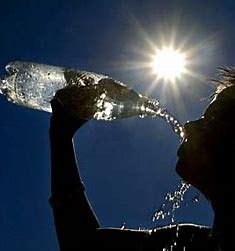Heat Waves and Heat Stroke
Heat Waves and Heat Stroke
Table of Contents
Introduction
Unprecedented heat waves across the globe in 2023 increased the incidence of heat-related disorders like heat stroke. Medical professionals started to worry about the rise in heat-related problems as temperatures reached record highs. In this post, we'll examine the origins and consequences of heat waves, consider the risks of heat stroke, and, most importantly, learn about the crucial preventive steps that medical professionals recommend.
Understanding Heat Waves
How do heat waves occur?
Heat waves are prolonged periods of excessively hot weather, turning increasingly prevalent as a result of climate change and global warming. The infrastructure, ecology, and human health are all seriously threatened by these occurrences.
Potential Causes of Heat Waves in 2023
The frequency and severity of heat waves in 2023 were influenced by a number of factors. Rising greenhouse gas emissions, deforestation, and urban heat island effects—where cities get much warmer than their rural surroundings—were some of these.
Heat Waves' Dangerous Effects on Health
The rise in temperatures caused by heat waves resulted in various health challenges. Heat-related illnesses, including heat exhaustion and heat stroke, became more prevalent.
Understanding Heat Stroke
What causes heat stroke?
Heat stroke is a severe and life-threatening condition that occurs when the body's core temperature rises to dangerous levels, usually above 104°F (40°C). This medical emergency requires immediate attention.
Symptoms of Heat Stroke
Heat stroke can manifest through symptoms such as throbbing headache, dizziness, rapid heartbeat, confusion, unconsciousness, and hot, dry skin without sweating.
At Risk Are Vulnerable Groups
The elderly, young children, those with chronic conditions, and outdoor workers are some of the categories that are more prone to heat stroke.
Preventing Heat Stroke According to Medical Experts
Staying Hydrated
One of the most crucial prevention strategies against heat stroke is staying well-hydrated. Drinking plenty of water throughout the day helps regulate body temperature and prevents dehydration, which can exacerbate heat-related conditions.
Avoiding Outdoor Activities During Peak Heat Hours
Avoid engaging in outdoor activities between 10 a.m. and 4 p.m., when temperatures are at their highest. If you must engage in outdoor activities, it is advised that you take regular pauses in cool, shaded settings.
Wearing Appropriate Clothing
Choosing lightweight, loose-fitting, and light-coloured clothing can aid in maintaining body temperature and reducing the risk of heat stroke.
Using Sunscreen
Applying sunscreen with a high SPF level shields the skin from UV radiation and lowers the chance of sunburn, which can worsen illnesses brought on by the heat.
Creating a Cool Environment
During periods of intense heat, staying in cold, air-conditioned spaces can greatly lower the risk of heat stroke.
keeping an eye on high-risk individuals
To safeguard the safety of high-risk persons during heat waves, such as the elderly and young children, families and carers should keep a constant eye on them.
Conclusion
The surge in heat waves in 2023 has led to an increased incidence of heat stroke, a dangerous condition with life-threatening consequences. However, by following the preventive measures recommended by medical experts, we can minimize the risks associated with extreme heat and protect ourselves and our loved ones.
FAQs
Q1: Can heat stroke be avoided?
Yes, heat stroke can be avoided by following the right precautions, such as drinking plenty of water, avoiding peak heat hours, and maintaining a cool environment.
Q2: Can heat stroke result in permanent harm?
Yes, if heat stroke is not treated right away, it can lead to long-term concerns like organ damage and neurological problems.
Q3:Are some people more prone to heat stroke than others?
Yes, those who are elderly, young, or who have been diagnosed with medical concerns are more prone to heat stroke.
Q4: What should I do if I believe someone is suffering from heat stroke?
If you suspect someone has a heat stroke, seek immediate medical attention, and try to cool them down by moving them to a shaded area and applying cool water.
Q5: Can climate change affect how frequently heat waves occur?
Yes, climate change has a big impact on how often and how intensely heat waves occur.




Post a Comment